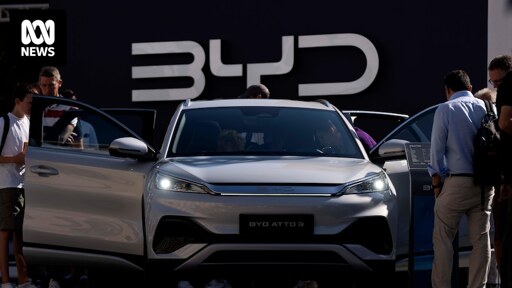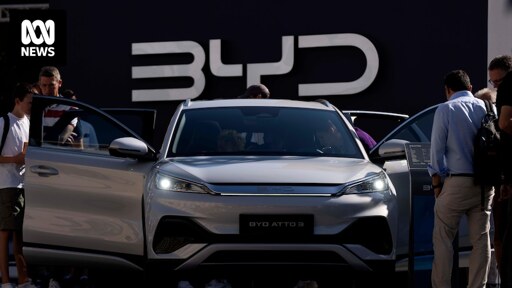- 97 Posts
- 25 Comments

 1·3 days ago
1·3 days agoYes, but not only this, but also Ukraine, China, and all the others.

It’s related to this:
Canada sanctions Chinese officials for human rights violations – (Dec 10, 2024)
[…] Mélanie Joly, Minister of Foreign Affairs, today announced sanctions under the Special Economic Measures (People’s Republic of China) Regulations against 8 former or current senior officials involved in grave human rights violations in the country.
The sanctions announced today respond to Chinese government-led repression of ethnic and religious minorities in China, including in Xinjiang, Tibet and against those who practise Falun Gong.
[…] Canada is deeply concerned over reports that China has arbitrarily detained more than one million people in Xinjiang since 2017, many of whom were held in camps and faced psychological, physical and sexual violence.
Tibetans have also endured human rights violations at the hands of the Chinese government. This includes forced labour, arbitrary detention and restrictions on their rights to freedom of religion or belief, expression, movement and association.
[…]
Quick facts
-
In July 2024, Minister Joly visited China and met with Minister Wang Yi to discuss Canada-China relations, human rights and complex global and regional security issues.
-
In September 2021, Canada announced new measures to address human rights abuses in Xinjiang, China. These measures addressed the risk of goods produced from forced labour from entering Canadian and global supply chains.
-
In March 2021, Canada enacted the Special Economic Measures (People’s Republic of China) Regulations and imposed sanctions against Chinese officials and a Chinese entity in response to gross and systematic human rights violations that have been committed in China.
-

 1·7 days ago
1·7 days agoYeah, but that appears to be two sides of one coin. A year ago, a researcher from Hong Kong argued in a book that a rise in the number of autocracies “expand Chinese global influence via Belt and Road.” From the excerpt of this book:
When rulers in autocracies with semi-competitive elections […] have a weak hold on power, their desire for Chinese spending is amplified. This relates to clientelism, or the delivery of goods and services in exchange for political support.
A higher level of state control in autocracies grants political leaders greater influence over the allocation of clientelist benefits, which aids leaders’ reelection efforts.
That’s maybe a good example that democracy -not ‘the West’- is China’s real and only enemy.

 1·7 days ago
1·7 days agoThe linked post in my comment says, among others:
-
All 9 Austrian teenagers between 14 and 17 years of age see radical right-wing propaganda, “free home delivered from China,” as the magazine writes.
-
The young people see Herbert Kickl, the current leader of the far-right Austrian Freedom Party, the avatar of Jörg Haider, a former right-wing politician who died in a car accident in 2008, and Alice Weidel, the head of the far-right AfD (Alternative for Germany - Alternative for Germany).
-
Russian propaganda arises, too, promoting immigration to Russia: “We offer work, a house, a Russian wife and military training,” promises a mock Vladimir Putin to a 15-year-old teenager from Styria, one of Austria’s nine states. Teenagers must apply only at “einbürgerung@kreml.ru”.
-
Donald Trump is doing his ‘Trump Dance’, anti-EU propaganda and pro-Islamic propaganda are as widespread as Quran videos, and, of course, there’s no lack of China’s Xi Jinping.
What has that to do with GDPR, Edward Snowden, and the NSA? What you are doing is blatant whataboutism.
-

 2·7 days ago
2·7 days agoDid you even clicked the link? Tiktok appears to be part of the Chinese Communist Party’s propaganda machine. With each of your comments you open up just the next round of whataboutism. Tankies are doing tankie things. This is waste of time.

 2·7 days ago
2·7 days agohttps://beehaw.org/u/InevitableList@beehaw.org
A few days ago I posted an English summary of a German language article about Tiktok in Austria (see this post: https://beehaw.org/post/17463020). There seems to be a clear pattern how Tiktok’s algorithm works, and it’s not good for the users, let alone teenagers.

 1·8 days ago
1·8 days agoWhat else would they say?

 6·8 days ago
6·8 days agoA few days ago I posted an English summary of a German language article about Tiktok in Austria (see this post: https://beehaw.org/post/17463020). There seems to be a clear pattern how Tiktok’s algorithm works, and it’s not good for the users, let alone teenagers.

 6·11 days ago
6·11 days agoWhat would be the alternative? One consequence of the so-called ‘multi-polar world’ will be a limited flow of capital between different blocs, limited cross-border investments across multiple industries, which might lead to market fragmentation and a divergence of technical standards. We could see degrees of globalization we had back in the 1990s.
Countries like Russia don’t seem to care about international law (or they care only if it is in their favor). This summer, some officials also discussed the seizure of China-owned infrastructure in Europe regarding Beijing’s support for Russia in its war against Ukraine. Russia and its allies will remain a threat to democracy which is their only real enemy. Russia won’t stop with Ukraine if they get what they want.
So, what’s the alternative?

 18·12 days ago
18·12 days agoNo, Chomsky and Herman don’t apply here, It was Russia that started the war. The aggressor is Putin’s Russia. The “manufactured consent” -if at all- works here only with the tankies and other derailed communities.
[Edit typo.]

 1·13 days ago
1·13 days agoThe Russian economy is going to face a very bad long-term future, even if the war ended today and all sanctions were lifted.

 2·14 days ago
2·14 days agoHow Russia prepares children in occupied Ukraine to fight against their own country
Russia is using a militaristic youth organization, Yunarmia, to foster the loyalty of teenagers in occupied parts of Ukraine and prepare them to fight in Moscow’s war against their native country […]
Russia opened the first Yunarmia branch in the occupied territories of Ukraine in Crimea months after the organisation’s official formation. By September 2016, Yunarmia had spread across the Black Sea peninsula, according to Oleh Okhredko, an analyst at the Almenda Center Of Civic Education, a Ukrainian group whose activities include documenting violations of the rights of children in wartime […]
In 2014, Russia occupied Crimea and fomented war in the Donetsk and Luhansk regions in eastern Ukraine – the Donbas […]
Yunarmia “was created with the specific idea of the militarised reeducation of not only Russian [children] but also Ukrainian children from the occupied territories,” said Kateryna Rashevska, a lawyer at the Regional Center for Human Rights, which was forced to move from Crimea to Kyiv after the Russian occupation.
By January 2022, a month before Russia’s full-scale invasion of Ukraine, Yunarmia had 29,000 members in Crimea alone, according to the Russian Defence Ministry […]

 10·15 days ago
10·15 days agoThis is a good question. There’s is no reason why this -and a lot of other things imho- must be connected.

 11·18 days ago
11·18 days agoAmazon is donating $1 million to Trump’s inauguration
Bezos and the company decided on the contribution earlier this week, and communicated it to Trump’s team, according to some of the people. “Bezos is donating through Amazon,” according to a person close to Bezos. Amazon also will stream the inauguration through its Prime Video business, a separate, in-kind donation valued at $1 million, another of the people said.
Seems to be sort of a flat rate.

 3·21 days ago
3·21 days agoYeah, or the West would have reacted accordingly already in 2014.

 3·22 days ago
3·22 days agoThat’s true. I corrected that now, thanks.

 4·22 days ago
4·22 days agoAs an addition to the article: Douyin, the Chinese version of the Western TikTok, might work in a different way. As a study regarding visual propaganda of Douyin accounts of Chinese central and local news agencies on China’s Douyin found in May 2024:
The results [of the research] delineate a divergence in focus between central and local news agencies: while the former prioritizes content related to the military, police, and firefighting, the latter emphasizes “livelihood warmth” topics. Central agencies predominantly feature soldiers, police officers, and firefighters, whereas local agencies portray individuals devoid of explicit political affiliations alongside other influencers. Emotional scrutiny unveils a contrast in strategies, with central agencies predominantly evoking emotions such as anger, disgust, fear, and intolerance, while local agencies employ anticipation, acceptance, and respect. This investigation underscores the profound influence of political authority within China’s propaganda framework, shaping both the substance and emotional resonance of political short videos within a hierarchical paradigm […]
Owing to their distinct positions within the hierarchical framework and their varying areas of jurisdiction, local government media at each level exhibit more pronounced hierarchical disparities in their propaganda compared to the central government. In general, the closer the themes and visual characteristics are to “Military, the police, and firefighting”, the less distinguishable they are from central media. Conversely, the more they focus on “People’s livelihood and warmth”, the more likely local governments are to adopt innovative promotional strategies concerning “points” while emphasizing regional characteristics. Although the local news agencies more actively produced content on Douyin than did the central news agencies, the central news agencies received more attention from the public.

 6·23 days ago
6·23 days agoThat’s fair, it doesn’t make China’s behavior better in any way, though.
















I’m not so sure. A few weeks ago I just stumbled upon a research paper on Sweden:
What Sweden thinks about markets, capitalism and the rich
So, of course, from a global perspective, it is supposedly among the countriest that come closest to the idea of democratic socialism, but there’s a lot to do, at least according to this research.